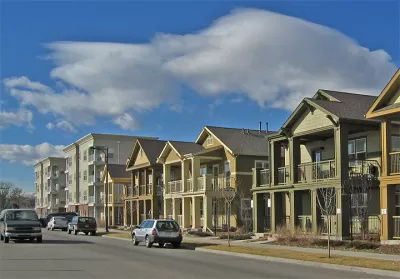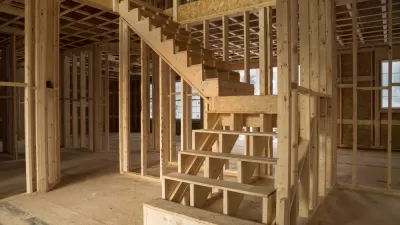Hundreds of homes built under Denver's affordable housing program were sold to buyers who didn't qualify for them. Now, the city is trying to clean up the mess.

Denver is attempting to find a solution after the revelation that about 300 homes built for low-income residents were sold to buyers who did not qualify for affordable housing. Now, city officials have proposed a compromise they hope will eventually recoup the affordable units without kicking people out of their homes. Andrew Kenney reports in the Post:
The new deal is simple: Affected homeowners would be allowed to keep their properties for as long as they want, even if they broke the income limits. But when they sell the houses, they would have to obey the program's strict pricing limits ... When they eventually move, the income restrictions on their properties would resume, staying in place for however many years the ineligible homeowner chose to stay in the home.
The pathway also applies to people who are breaking other rules, including illegally renting out their homes.
Officials claim the root of these mistaken transactions is an error at the state level resulting in local affordability restrictions not being presented clearly during sales. But attorneys for the homeowners accuse the city of negligence in administering the affordable housing program over the last 15 years.
FULL STORY: Denver offers a fix for affordable housing mess, but dozens of homeowners could take a hit

Planetizen Federal Action Tracker
A weekly monitor of how Trump’s orders and actions are impacting planners and planning in America.

Map: Where Senate Republicans Want to Sell Your Public Lands
For public land advocates, the Senate Republicans’ proposal to sell millions of acres of public land in the West is “the biggest fight of their careers.”

Restaurant Patios Were a Pandemic Win — Why Were They so Hard to Keep?
Social distancing requirements and changes in travel patterns prompted cities to pilot new uses for street and sidewalk space. Then it got complicated.

California Homeless Arrests, Citations Spike After Ruling
An investigation reveals that anti-homeless actions increased up to 500% after Grants Pass v. Johnson — even in cities claiming no policy change.

Albuquerque Route 66 Motels Become Affordable Housing
A $4 million city fund is incentivizing developers to breathe new life into derelict midcentury motels.

DC Area County Eliminates Bus Fares
Montgomery County joins a growing trend of making transit free.
Urban Design for Planners 1: Software Tools
This six-course series explores essential urban design concepts using open source software and equips planners with the tools they need to participate fully in the urban design process.
Planning for Universal Design
Learn the tools for implementing Universal Design in planning regulations.
Heyer Gruel & Associates PA
JM Goldson LLC
Custer County Colorado
City of Camden Redevelopment Agency
City of Astoria
Transportation Research & Education Center (TREC) at Portland State University
Camden Redevelopment Agency
City of Claremont
Municipality of Princeton (NJ)





























